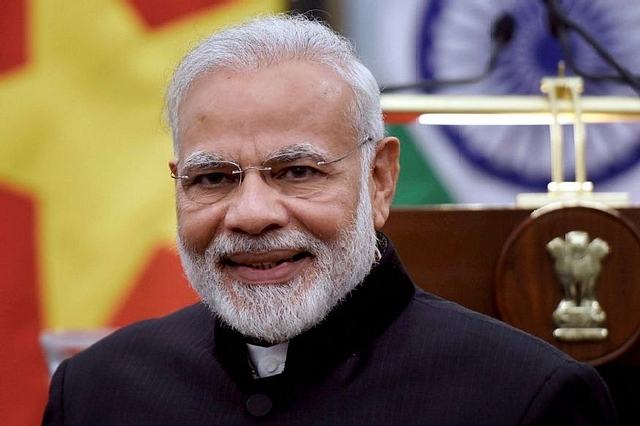
Road To $5 Trillion Economy Runs Through States; Modi Must Offer Them A Share Of Privatisation Spoils
If states are offered benefits from the net proceeds of companies in their territories, their opposition to privatisation will diminish.
Which is why Modi and Shah should offer them a deal which puts cash in state governments’ pockets.
The government’s move to privatise Bharat Petroleum Corporation Limited (BPCL), along with some other public sector undertakings like Shipping Corporation, THDC India Ltd, and Neepco, is a watershed moment for the Narendra Modi government.
The government recently surprised the market with the announcement of deep tax cuts for the corporate sector. It can now do so by enabling privatisation.
Unlike normal disinvestment, where small lots of shares are sold to investors while the state keeps majority control, this time around it appears that the government is finally going to privatise profitable companies like BPCL, which needs a bill to be approved by Parliament. Under a Supreme Court order, companies which were nationalised through an act of Parliament cannot be sold without that act being amended. This means BPCL cannot be privatised without Parliament’s nod.
The big question is whether the Modi government has the requisite numbers in the Rajya Sabha to pass these changes?
The answer should be yes, if the two-thirds majority for the more contentious decisions on bifurcating Jammu and Kashmir into two Union Territories, and abrogating Article 370, were to be taken exhibits.
However, one cannot count the chickens before they are hatched, and it would be foolish for Modi or Amit Shah to presume that the majority that held for passing the triple talaq and J&K changes will hold for economic legislation too.
In fact, instead of trying to amend various nationalisation acts separately as and when the government wants to divest or privatise, it should use this opportunity to allow for the privatisation of all nationalised entities barring a select few, by getting enabling legislation passed. This should include the Bank and Coal Nationalisation Acts.
The big question is: why would state and regional parties want to support the government on this, when they can play to the gallery and claim that Modi is selling the household silver – as Mamata Banerjee did with reference to the Air India privatisation proposal last year, and the Dravida Munnetra Kazhagam did to stymie a stake sale in Neyveli Lignite during the United Progressive Alliance era?
Politically, it cannot be assumed that the opposition parties will not gain traction on this issue, which is why Modi and Shah should offer them a deal. There is no deal as good as a financial deal which puts cash in state governments’ pockets.
If states are offered, say, 20-25 per cent of the net proceeds of companies in their territories, or some cash through a different formula, their opposition to privatisation will diminish.
Just as the government used its first 100 days of honeymoon to move decisively on Article 370, in the next 100 it should use its still substantial political capital to make big economic changes, including privatisation.
The priorities in economic legislation should be privatisation, factor market reforms, and freeing agriculture from the limitations of agricultural produce market committee (APMC) and stop-go economic policies.
It is now or never. Once we enter a period of endless state elections, the need for opposition parties to cooperate will reduce. And with that will go the chance to move the big reforms that will take India’s economy to another orbit.
The road to a $5 trillion economy runs through states. The growth needed to achieve this goal needs to be powered by massive investments in infrastructure, which depends on the government’s ability to sell its key assets. This means Modi has to buy state acquiescence in privatisation of public assets.